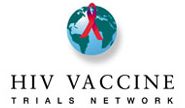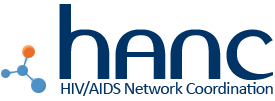The management of HIV/AIDS normally includes the use of multiple antiretroviral drugs in an attempt to control HIV infection. There are several classes of antiretroviral agents that act on different stages of the HIV life-cycle. The use of multiple drugs that act on different viral targets is known as highly active antiretroviral therapy (HAART). HAART decreases the patient's total burden of HIV, maintains function of the immune system, and prevents opportunistic infections that often lead to death. HAART also prevents the transmission of HIV between serodiscordant same sex and opposite sex partners so long as the HIV-positive partner maintains an undetectable viral load.

Nevirapine (NVP), sold under the brand name Viramune among others, is a medication used to treat and prevent HIV/AIDS, specifically HIV-1. It is generally recommended for use with other antiretroviral medications. It may be used to prevent mother to child spread during birth but is not recommended following other exposures. It is taken by mouth.

The International AIDS Vaccine Initiative (IAVI) is a global not-for-profit, public-private partnership working to accelerate the development of vaccines to prevent HIV infection and AIDS. IAVI researches and develops vaccine candidates, conducts policy analyses, serves as an advocate for the HIV prevention field and engages communities in the trial process and AIDS vaccine education. The organization takes a comprehensive approach to HIV and AIDS that supports existing HIV prevention and treatment programs while emphasizing the need for new AIDS prevention tools. It also works to ensure that future vaccines will be accessible to all who need them.
The Children's Oncology Group (COG), a clinical trials group supported by the National Cancer Institute (NCI), is the world's largest organization devoted exclusively to pediatric cancer research. The COG conducts a spectrum of clinical research and translational research trials for infants, children, adolescents, and young adults with cancer.

The AIDS Clinical Trials Group network (ACTG) is one of the largest HIV clinical trials organizations in the world, playing a major role in setting standards of care for HIV infection and opportunistic diseases related to HIV and AIDS in the United States and the developing world. The ACTG is composed of, and directed by, leading clinical scientists in HIV/AIDS therapeutic research. The ACTG is funded by the Department of Health and Human Services, National Institutes of Health through the National Institute of Allergy and Infectious Diseases.
The Division of Acquired Immunodeficiency Syndrome (DAIDS) is a division of the National Institute of Allergy and Infectious Diseases, which is part of the National Institutes of Health. It was formed in 1986 as a part of the initiative to address the national research needs created by the advent and spread of the HIV/AIDS epidemic. Specifically, the Division's mission is to increase basic knowledge of the pathogenesis, natural history, and transmission of HIV disease and to support research that promotes progress in its detection, treatment, and prevention. DAIDS accomplishes this through planning, implementing, managing, and evaluating programs in (1) fundamental basic research, (2) discovery and development of therapies for HIV infection and its complications, and (3) discovery and development of vaccines and other prevention strategies.

The HIV Vaccine Trials Network (HVTN) is a non-profit organization which connects physicians and scientists with activists and community educators for the purpose of conducting clinical trials seeking a safe and effective HIV vaccine. Collaboratively, researchers and laypeople review potential vaccines for safety, immune response, and efficacy. The HVTN is a network for testing vaccines, and while its members may also work in vaccine development for other entities, the mission of the HVTN does not include vaccine design.
The Centre for Infectious Disease Research in Zambia (CIDRZ) is a non-profit organisation founded in 2001 as collaboration between the University of Alabama at Birmingham, USA, the Ministry of Health of Zambia and the University of Zambia School of Medicine. In 2011 CIDRZ became an independent, Zambian, non-governmental organisation able to collaborate with multiple local and international universities.
Anke A. Ehrhardt is a researcher in the field of sexual and gender development of children, adolescents, and adults. Her research has included a wide range of studies on determinants of sexual risk behavior among children, adolescents, heterosexual women and men, and the gay population, and on comprehensive approaches to preventing HIV and STD infection. Ehrhardt is the Founding Director of the HIV Center for Clinical and Behavioral Studies at the New York State Psychiatric Institute and Columbia University, where she has had a particular focus on research and advocacy for female-controlled methods of HIV prevention.
CONRAD is a non-profit organization scientific research organization that works to improve the reproductive health of women, especially in developing countries. CONRAD was established in 1986 under a cooperative agreement between Eastern Virginia Medical School (EVMS) and the United States Agency for International Development(USAID). CONRAD’s products are developed primarily for women in low-resource settings, in that they are designed to be safe, affordable and user-friendly. CONRAD is led by Scientific and Executive Director Gustavo Doncel, M.D., Ph.D. Primary funding for CONRAD comes from the U.S. President's Emergency Plan for AIDS Relief (PEPFAR) through the U.S. Agency for International Development (USAID), with additional funding from The Bill & Melinda Gates Foundation and the National Institutes of Health (NIH).

The Office of HIV/AIDS Network Coordination, known as HANC, works with the National Institutes of Health HIV/AIDS clinical trials networks with the intent of creating a more integrated, collaborative and flexible research structure. The networks are an affiliated group of national and international medical research institutions and investigators that conduct clinical HIV/AIDS research to develop safe and effective drugs, prevention strategies, and vaccines.
Arthur J. Ammann was an American pediatric immunologist and advocate known for his research on HIV transmission, discovering in utero transmission and the risk of contaminated transfusions and blood products, and his role in the development of the first successful vaccine to prevent pneumococcal infection in 1977. He founded Global Strategies for HIV Prevention and was Clinical Professor of Pediatrics at the UCSF Medical Center.
Deborah Persaud is a Guyanese-born American virologist who primarily works on HIV/AIDS at Johns Hopkins Children's Center.

Mary Jane Rotheram-Borus is a licensed clinical psychologist and professor with the University of California, Los Angeles, Department of Psychiatry and Biobehavioral Sciences. Rotheram is the professor-in-residence in the Semel Institute for Neuroscience and Human Behavior. She is the Director of the Global Center for Children and Families at UCLA and the former director of the Center for HIV Identification, Prevention, and Treatment Services.
HIV in pregnancy is the presence of an HIV/AIDS infection in a woman while she is pregnant. There is a risk of HIV transmission from mother to child in three primary situations: pregnancy, childbirth, and while breastfeeding. This topic is important because the risk of viral transmission can be significantly reduced with appropriate medical intervention, and without treatment HIV/AIDS can cause significant illness and death in both the mother and child. This is exemplified by data from The Centers for Disease Control (CDC): In the United States and Puerto Rico between the years of 2014-2017, where prenatal care is generally accessible, there were 10,257 infants in the United States and Puerto Rico who were exposed to a maternal HIV infection in utero who did not become infected and 244 exposed infants who did become infected.

Quarraisha Abdool Karim, is an infectious diseases epidemiologist and co-founder and Associate Scientific Director of CAPRISA. She is Professor in Clinical Epidemiology, Columbia University, New York and Pro-Vice Chancellor for African Health, University of KwaZulu-Natal, South Africa.

Lauren V. Wood is an American allergist, immunologist, and staff physician at the National Cancer Institute (NCI) at the National Institutes of Health (NIH) in Bethesda, Maryland, where she has served as a principal investigator. She is known for conducting studies of vaccines for cancer, Human papillomavirus (HPV), Hepatitis C, and HIV especially for use with children, teens and young adults. She holds the rank of captain in the U.S. Public Health Service (PHS).
Remune is the first therapeutic HIV vaccine based on the killed whole virus approach. Remune was initially invented by Jonas Salk in 1987 and is now being developed by Immune Response BioPharma, Inc. (IRBP)

Debra A. Murphy is a Professor Emerita at the University of California, Los Angeles in the Department of Psychiatry.









